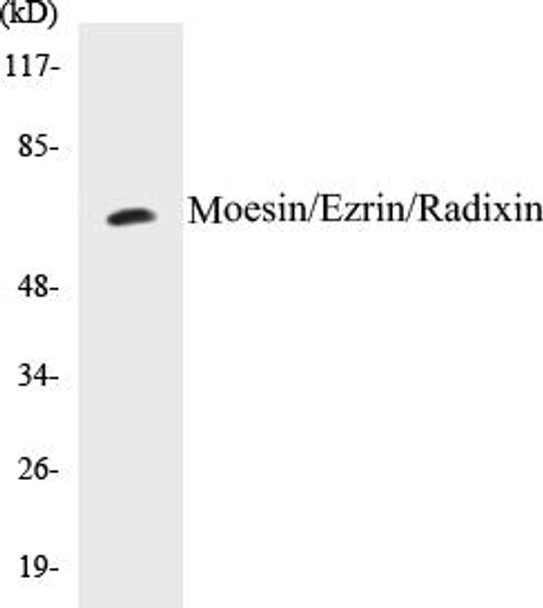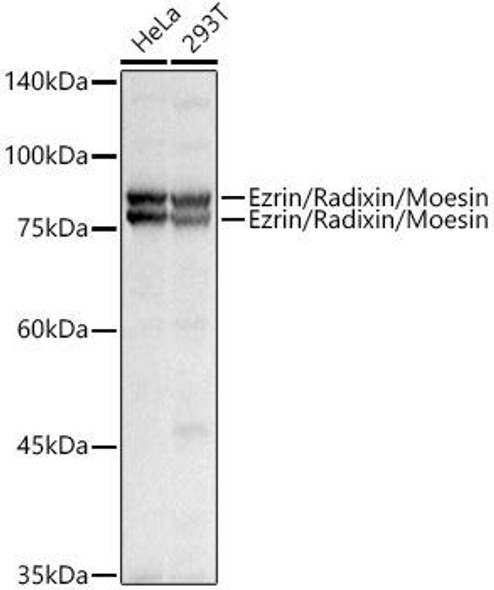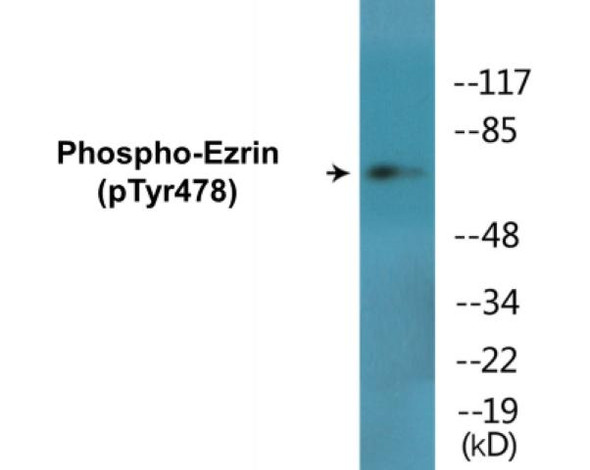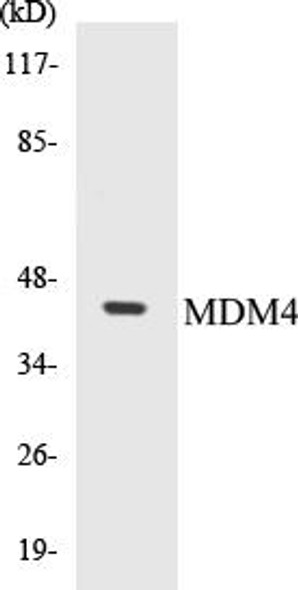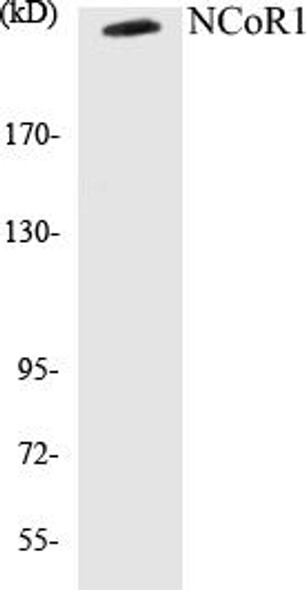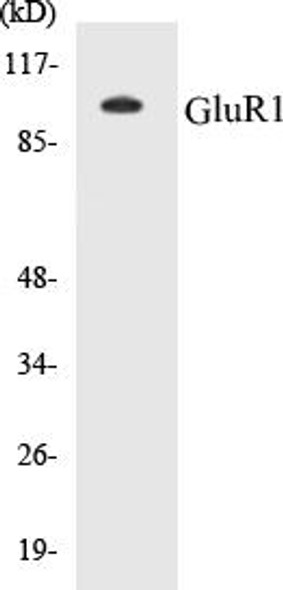Moesin/Ezrin/Radixin Colorimetric Cell-Based ELISA Kit
- SKU:
- CBCAB00768
- Product Type:
- ELISA Kit
- ELISA Type:
- Cell Based
- Research Area:
- Immunology
- Reactivity:
- Human
- Mouse
- Rat
- Detection Method:
- Colorimetric
Description
Moesin/Ezrin/Radixin Colorimetric Cell-Based ELISA Kit
The Moesin/Ezrin/Radixin Colorimetric Cell-Based ELISA Kit from Assaygenie is a cutting-edge tool for analyzing the expression levels of these key proteins in cell cultures. This kit offers high sensitivity and specificity, allowing for accurate and reproducible results in a variety of research applications.Moesin, Ezrin, and Radixin are members of the ERM protein family and play vital roles in cell structure, membrane dynamics, and cell signaling.
Dysregulation of these proteins has been implicated in various diseases, including cancer, inflammatory disorders, and neurological conditions.By utilizing the Moesin/Ezrin/Radixin Colorimetric Cell-Based ELISA Kit, researchers can gain valuable insights into the functions and regulatory mechanisms of these proteins in cellular processes. This kit is a valuable tool for studying cell biology, disease mechanisms, and potential therapeutic targets.
| Product Name: | Moesin/Ezrin/Radixin Colorimetric Cell-Based ELISA |
| Product Code: | CBCAB00768 |
| ELISA Type: | Cell-Based |
| Target: | Moesin/Ezrin/Radixin |
| Reactivity: | Human, Mouse, Rat |
| Dynamic Range: | > 5000 Cells |
| Detection Method: | Colorimetric 450 nmStorage/Stability:4°C/6 Months |
| Format: | 96-Well Microplate |
The Moesin/Ezrin/Radixin Colorimetric Cell-Based ELISA Kit is a convenient, lysate-free, high throughput and sensitive assay kit that can detect Moesin/Ezrin/Radixin protein expression profile in cells. The kit can be used for measuring the relative amounts of Moesin/Ezrin/Radixin in cultured cells as well as screening for the effects that various treatments, inhibitors (ie siRNA or chemicals), or activators have on Moesin/Ezrin/Radixin.
Qualitative determination of Moesin/Ezrin/Radixin concentration is achieved by an indirect ELISA format. In essence, Moesin/Ezrin/Radixin is captured by Moesin/Ezrin/Radixin-specific primary antibodies while the HRP-conjugated secondary antibodies bind the Fc region of the primary antibody. Through this binding, the HRP enzyme conjugated to the secondary antibody can catalyze a colorimetric reaction upon substrate addition. Due to the qualitative nature of the Cell-Based ELISA, multiple normalization methods are needed:
| 1. | A monoclonal antibody specific for human GAPDH is included to serve as an internal positive control in normalizing the target absorbance values. |
| 2. | Following the colorimetric measurement of HRP activity via substrate addition, the Crystal Violet whole-cell staining method may be used to determine cell density. After staining, the results can be analysed by normalizing the absorbance values to cell amounts, by which the plating difference can be adjusted. |
| Database Information: | Gene ID: 4478/5962, UniProt ID: P26038/P35241/P15311, OMIM: 309845/179410/611022/123900, Unigene: Hs.487027/Hs.263671/Hs.592679/HS87752 |
| Gene Symbol: | MSN |
| Sub Type: | None |
| UniProt Protein Function: | Probably involved in connections of major cytoskeletal structures to the plasma membrane. May inhibit herpes simplex virus 1 infection at an early stage. |
| NCBI Summary: | Moesin (for membrane-organizing extension spike protein) is a member of the ERM family which includes ezrin and radixin. ERM proteins appear to function as cross-linkers between plasma membranes and actin-based cytoskeletons. Moesin is localized to filopodia and other membranous protrusions that are important for cell-cell recognition and signaling and for cell movement. [provided by RefSeq, Jul 2008] |
| UniProt Code: | P26038 |
| NCBI GenInfo Identifier: | 127234 |
| NCBI Gene ID: | 4478 |
| NCBI Accession: | P26038.3 |
| UniProt Secondary Accession: | P26038,P35241, P15311, P26041, P26043, P26040, O35763 P31977, |
| UniProt Related Accession: | P26038 |
| Molecular Weight: | 67,820 Da |
| NCBI Full Name: | Moesin |
| NCBI Synonym Full Names: | moesin |
| NCBI Official Symbol: | MSN |
| NCBI Official Synonym Symbols: | HEL70 |
| NCBI Protein Information: | moesin |
| UniProt Protein Name: | Moesin |
| UniProt Synonym Protein Names: | Membrane-organizing extension spike protein |
| UniProt Gene Name: | MSN |
| UniProt Entry Name: | MOES_HUMAN |
| Component | Quantity |
| 96-Well Cell Culture Clear-Bottom Microplate | 2 plates |
| 10X TBS | 24 mL |
| Quenching Buffer | 24 mL |
| Blocking Buffer | 50 mL |
| 15X Wash Buffer | 50 mL |
| Primary Antibody Diluent | 12 mL |
| 100x Anti-Phospho Target Antibody | 60 µL |
| 100x Anti-Target Antibody | 60 µL |
| Anti-GAPDH Antibody | 60 µL |
| HRP-Conjugated Anti-Rabbit IgG Antibody | 12 mL |
| HRP-Conjugated Anti-Mouse IgG Antibody | 12 mL |
| SDS Solution | 12 mL |
| Stop Solution | 24 mL |
| Ready-to-Use Substrate | 12 mL |
| Crystal Violet Solution | 12 mL |
| Adhesive Plate Seals | 2 seals |
The following materials and/or equipment are NOT provided in this kit but are necessary to successfully conduct the experiment:
- Microplate reader able to measure absorbance at 450 nm and/or 595 nm for Crystal Violet Cell Staining (Optional)
- Micropipettes with capability of measuring volumes ranging from 1 µL to 1 ml
- 37% formaldehyde (Sigma Cat# F-8775) or formaldehyde from other sources
- Squirt bottle, manifold dispenser, multichannel pipette reservoir or automated microplate washer
- Graph paper or computer software capable of generating or displaying logarithmic functions
- Absorbent papers or vacuum aspirator
- Test tubes or microfuge tubes capable of storing ≥1 ml
- Poly-L-Lysine (Sigma Cat# P4832 for suspension cells)
- Orbital shaker (optional)
- Deionized or sterile water
*Note: Protocols are specific to each batch/lot. For the correct instructions please follow the protocol included in your kit.
| Step | Procedure |
| 1. | Seed 200 µL of 20,000 adherent cells in culture medium in each well of a 96-well plate. The plates included in the kit are sterile and treated for cell culture. For suspension cells and loosely attached cells, coat the plates with 100 µL of 10 µg/ml Poly-L-Lysine (not included) to each well of a 96-well plate for 30 minutes at 37°C prior to adding cells. |
| 2. | Incubate the cells for overnight at 37°C, 5% CO2. |
| 3. | Treat the cells as desired. |
| 4. | Remove the cell culture medium and rinse with 200 µL of 1x TBS, twice. |
| 5. | Fix the cells by incubating with 100 µL of Fixing Solution for 20 minutes at room temperature. The 4% formaldehyde is used for adherent cells and 8% formaldehyde is used for suspension cells and loosely attached cells. |
| 6. | Remove the Fixing Solution and wash the plate 3 times with 200 µL 1x Wash Buffer for five minutes each time with gentle shaking on the orbital shaker. The plate can be stored at 4°C for a week. |
| 7. | Add 100 µL of Quenching Buffer and incubate for 20 minutes at room temperature. |
| 8. | Wash the plate 3 times with 1x Wash Buffer for 5 minutes each time. |
| 9. | Add 200 µL of Blocking Buffer and incubate for 1 hour at room temperature. |
| 10. | Wash 3 times with 200 µL of 1x Wash Buffer for 5 minutes each time. |
| 11. | Add 50 µL of 1x primary antibodies (Anti-Moesin/Ezrin/Radixin Antibody and/or Anti-GAPDH Antibody) to the corresponding wells, cover with Parafilm and incubate for 16 hours (overnight) at 4°C. If the target expression is known to be high, incubate for 2 hours at room temperature. |
| 12. | Wash 3 times with 200 µL of 1x Wash Buffer for 5 minutes each time. |
| 13. | Add 50 µL of 1x secondary antibodies (HRP-Conjugated AntiRabbit IgG Antibody or HRP-Conjugated Anti-Mouse IgG Antibody) to corresponding wells and incubate for 1.5 hours at room temperature. |
| 14. | Wash 3 times with 200 µL of 1x Wash Buffer for 5 minutes each time. |
| 15. | Add 50 µL of Ready-to-Use Substrate to each well and incubate for 30 minutes at room temperature in the dark. |
| 16. | Add 50 µL of Stop Solution to each well and read OD at 450 nm immediately using the microplate reader. |
(Additional Crystal Violet staining may be performed if desired – details of this may be found in the kit technical manual.)

